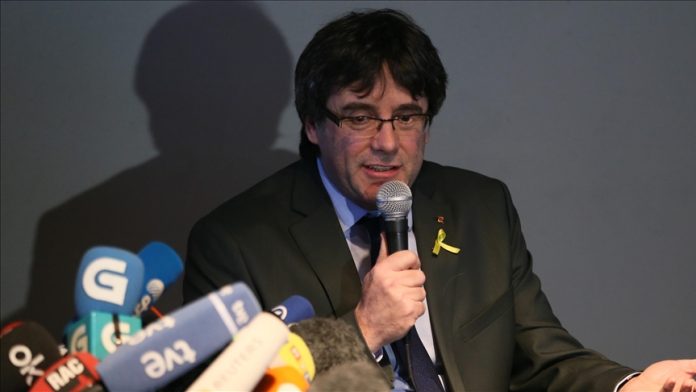Spain’s highest court has opened a terrorism investigation into former Catalan president and separatist leader Carles Puigdemont over protests related to the region’s failed 2017 independence referendum, POLITICO reports.
On Thursday, the court released a statement saying the Supreme Court unanimously decided to investigate Puigdemont and MP Ruben Wagensberg “for terrorism offences in relation to the facts investigated in the Democratic Tsunami case.”
The “Democratic Tsunami” is a secretive Catalan group that in 2019 organised a series of protests against the imprisonment of several separatist leaders involved in the 2017 referendum; during the unrest, thousands of protesters blocked access to Barcelona airport, clashing with police and cancelling more than 100 flights.
The court decided to launch an investigation after examining a statement by Judge Manuel García-Castellón, which contains “evidence that, in his opinion, proves the participation of the two accused in the events under investigation”. Puigdemont, who lives in self-imposed exile in Belgium, said in reaction to the news:
“All I’m missing now is to be accused of having a secret account in Panama. The Spanish Judicial Matrix has adapted the maxim of bad journalism: Don’t let reality stand in the way of a good indictment.”
Launching the investigation, the Supreme Court judges decided to cross their own prosecutors, who earlier this month rejected a request to file terrorism charges against Puigdemont in connection with the Democratic Tsunami, saying the case had “no factual basis” linking the politician and the group.
The investigation also pits the court against Spain’s national government and its European partners. At an emergency European Council summit in Brussels this month, Spanish Prime Minister Pedro Sánchez rejected the premise of the case and said “the Catalan independence movement is not terrorism.”
Last week, the Swiss judiciary also took the unusual step of halting co-operation with its Spanish counterparts, expressing doubts about the legitimacy of the investigation and fears it could be a “political affair”.
On Thursday, the Supreme Court said it had “no doubt” that what allegedly happened in the Democratic Tsunami case met the judicial definition of terrorism.
In a statement, the court referred to “street terrorism,” a crime that aims to “undermine the constitutional order, seriously disturb the public peace, seriously destabilise the functioning of an international organisation or provoke a state of terror among the population or a section of it.”
He added that there are “a number of indications that prove the involvement of Carles Puigdemont in the events under investigation.” The investigation comes at a time when Spanish lawmakers are trying to find common ground on an amnesty bill that would guarantee immunity to all those prosecuted for their involvement in the pro-Catalan independence movement since 2012.
Last November, Sanchez managed to form a government thanks to the support of Puigdemont’s Junts party, which agreed to back the Socialist leader in exchange for the passage of the amnesty bill.
However, in a crucial vote last month, members of Puigdemont’s party blocked the bill, arguing that it did not fully protect separatists from prosecution for terrorism-related offences.
The launch of a Supreme Court investigation into the terrorism case against Puigdemont is likely to make negotiations on the bill even more tense and jeopardise its quick approval.
